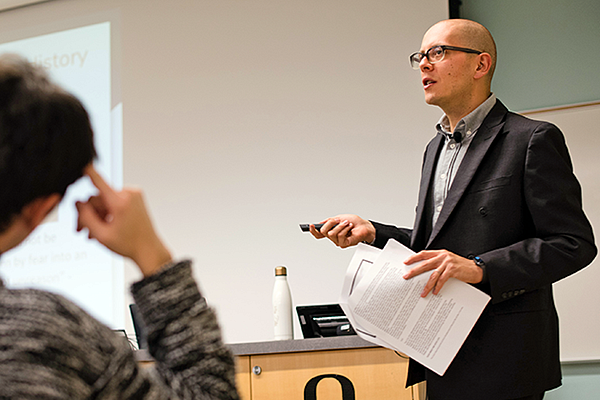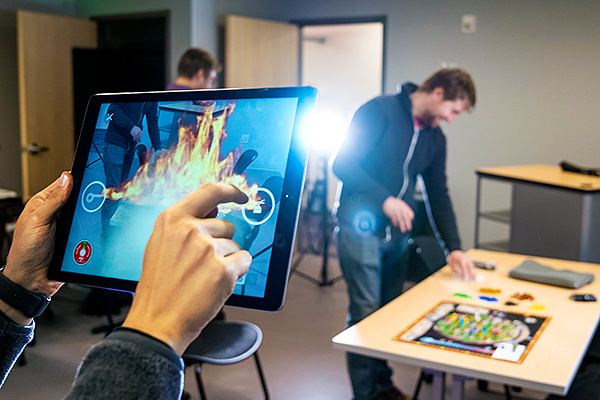SOJC faculty and grad students didn’t let COVID stall their research. In fact, many of them turned their eyes to the pandemic, helping us to understand tricky stats, exploring whether virtual reality could put empathy back in pandemic life, and investigating how inequity is showing up in virtual work environments. Our faculty’s groundbreaking research and innovative practice puts them on the leading edge of their fields. And with award-winning scholars and professionals as their guides and mentors, SOJC students explore the outer limits of their potential as they catapult to academic and career success.
The Agora Journalism Center has a new mission: to be the forum for the future of local news and civic health in Oregon and beyond. Founded in 2015, the center has been a gathering place for innovation in communication and civic engagement for years. To continue connecting the dots among information, engagement, and civic health, the center will now focus on advancing community-centered journalism in service to civic and information health, leveraging the research and storytelling expertise of SOJC faculty and students along the way.
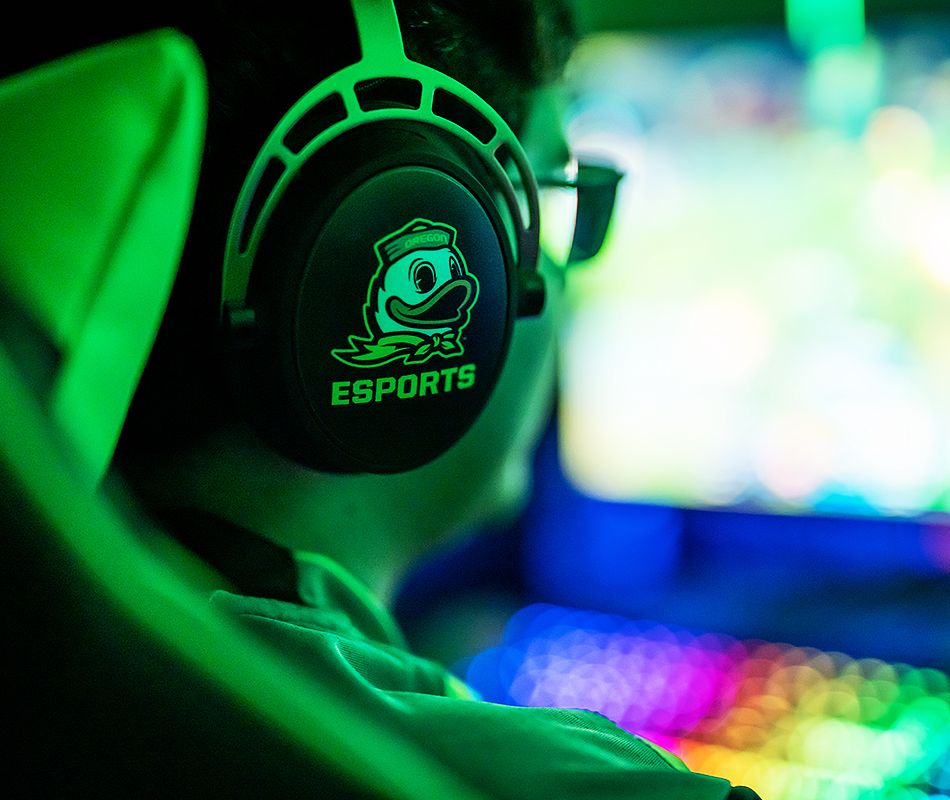
Video games have been a part of mainstream American culture since the 1980s, and competitive online gaming—also known as esports—has become a billion-dollar media phenomenon with millions of viewers worldwide. How is this new form of media affecting society and college campuses—including UO, which launched its own esports team last year? Amanda Cote and Maxwell Foxman, assistant professors of media and games studies, are trying to find out.
Enhancing the Conversation Between Science and Society
Scientific and technological advancements can improve lives and build better communities—but only if we understand them. The University of Oregon’s Environment Initiative is answering questions about how to conserve, preserve, and sustain our environment, while the SOJC’s Center for Science and Communication Research (SCR) is closing the communication gap between scientists and citizens through research and storytelling.
Numeric literacy—a.k.a. math skills—can affect our lives in profound ways, from our health to our finances. Number skills also matter in communication fields. Communication professionals who know how to use data in their work can build audience trust, draw valuable insights from science, and help others understand those insights. The SCR is teaching students how to clearly communicate scientific evidence and data to the public to help them make informed decisions.
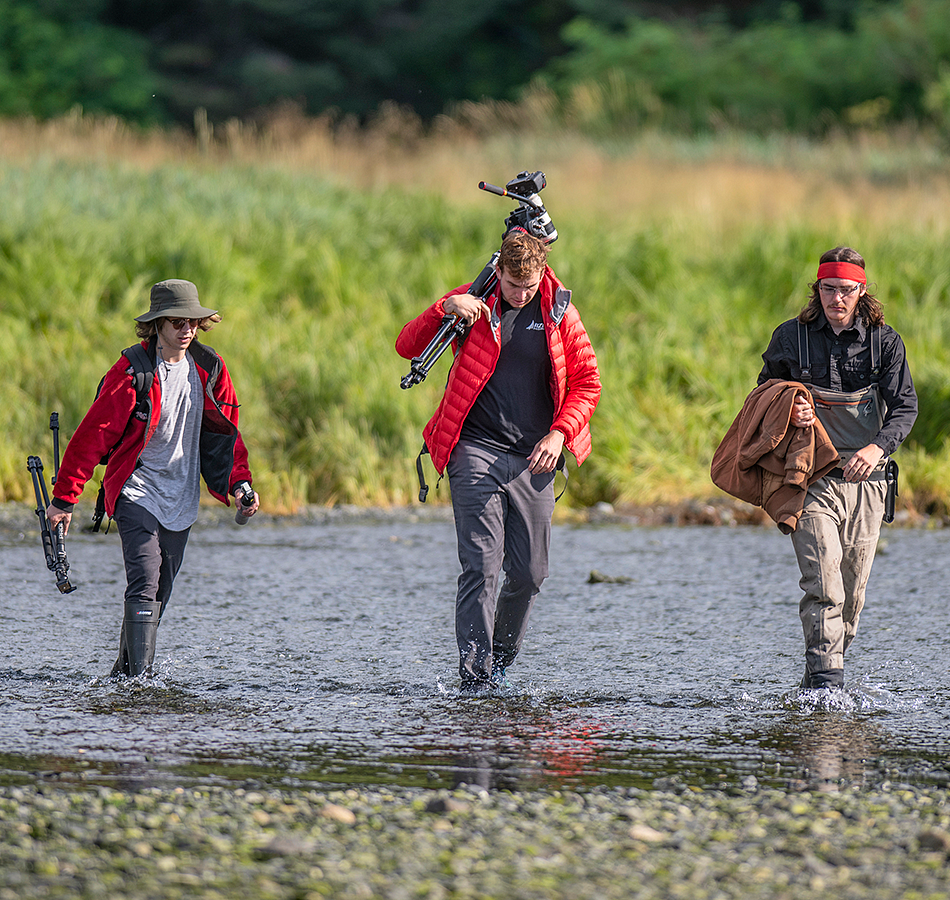
A new minor in science communication at the SOJC will teach students how to research and present scientific findings to the public and prepare them for careers in the field. Launched through the SCR, the minor explores the issues, skills, and scholarship growing around the science of science communication. And courses like The Science Story take students into the field to practice what they're learning in the classroom.

An expert in judgment and decision-making, SCR director Ellen Peters got an early jump on studying the unfolding communication surrounding the coronavirus outbreak. She’s investigated how people think about the pandemic and the communications that resonate with them, and she’s got tips for understanding tricky COVID stats and why parental decision-making is so hard. She also contributed to the UO's communication strategies for helping students stay safe and healthy
How to Approach Wildfire Communications
Wildfires have long shaped the Pacific Northwest. Through the lens of recent wildland fires in Oregon, SCR researchers Mark Blaine and Hollie Smith launched The Fire Story podcast to give communication professionals and the public a more nuanced understanding of wildfire’s multiple dimensions—from how to communicate during a fire event and prepare for a fire to how communities and the landscape can recover.
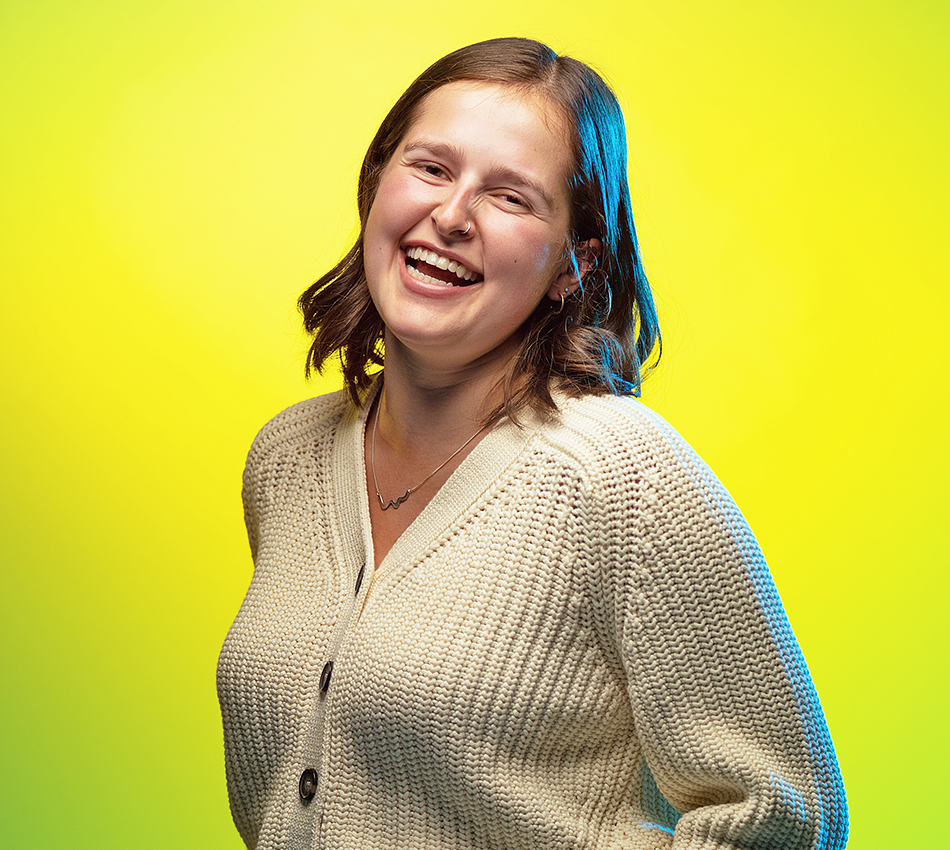
SOJC undergrad Eliza Lawrence has a few thoughts on how the Centers for Disease Control and Prevention can improve the way it talks about COVID-19 vaccines. The sophomore and soon-to-be-published researcher spent the summer collaborating with Ellen Peters, director of the SCR, to discover how information about the vaccine’s side effects may influence whether people choose to get vaccinated. She found that including numeric data encourages people to trust the vaccine.
Immersive Media and the Future of Communication
To keep up in an experiential age, advanced organizations are already using virtual reality, augmented reality, and 360 video to capture the attention of media-saturated audiences. In the Immersive Media Lab in the Experience Hub in Eugene, students and faculty are learning about and experimenting with these emerging technologies. And at the Oregon Reality (OR) Lab in Portland, master’s students in the immersive media communication track are using the new technology as an ethical tool for communication innovation.


